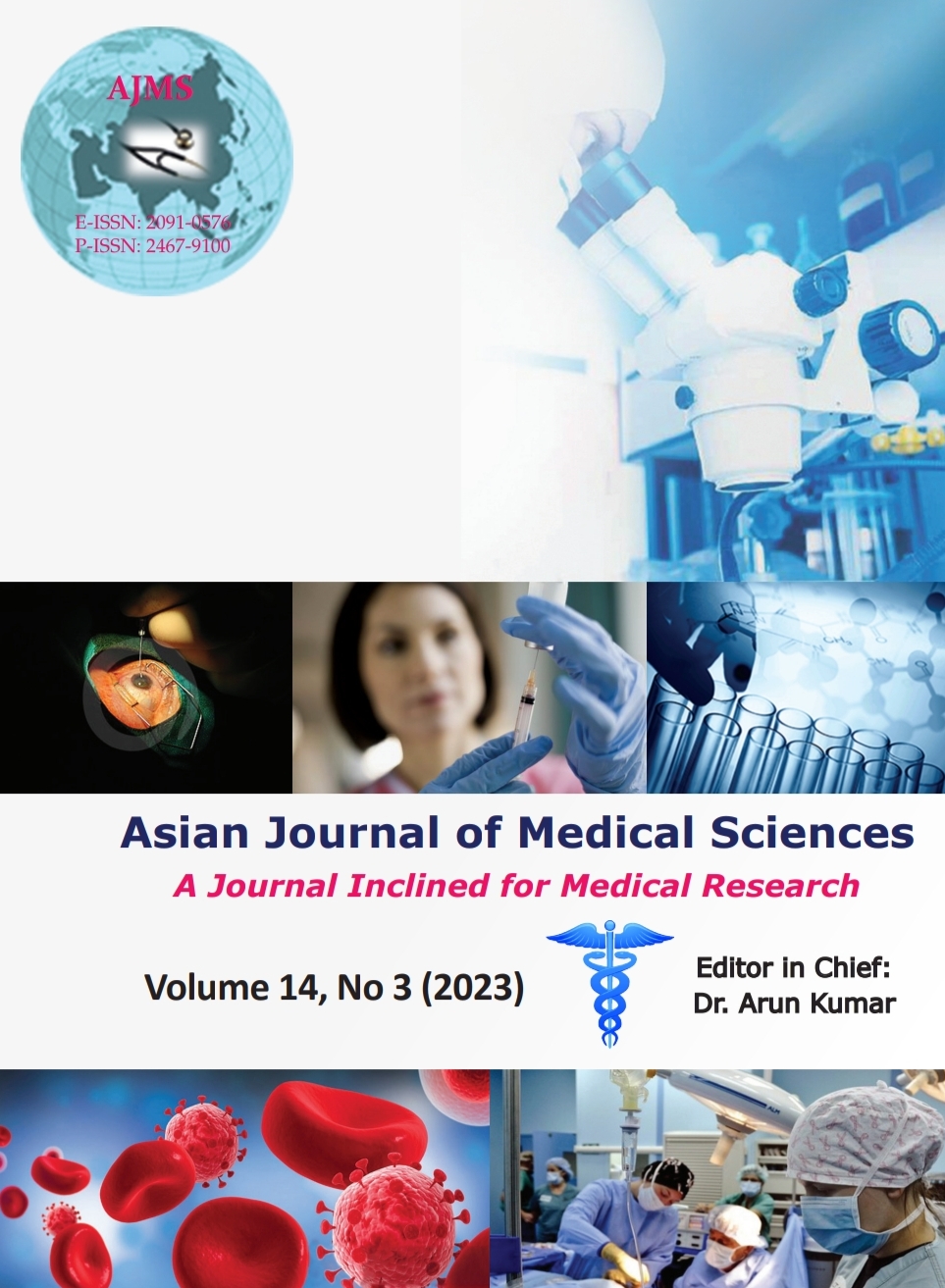Efficacy of local infiltration analgesia in post-operative pain management following total knee replacement
Keywords:
Local infiltrative anesthesia; Pain; Arthroplasty; Rehabilitation; InfectionAbstract
Background: Post-operative pain and prosthetic joint infections are two crucial impediments in providing a good quality of life after surgery.
Aims and Objectives: In this study, we evaluated the efficacy of local infiltrative anesthesia (LIA) in total knee arthroplasty (TKA) and to study associated complications.
Materials and Methods: The present study was conducted over 2 years. All patients who underwent total knee replacement for degenerative arthritis of the knee were considered for the study. Questionnaire consisted of three sections, first section: Demographic profile, second one: Laterality of knee, duration of surgery, final section: Consisted of pain evaluation by visual analog score. Pain assessment in post-operative period was done for 3 days (72 h) and was estimated using visual analogue score (0–10). Assessment was done at 6 h, 24 h, 48 h, and 72 h after surgery during rest and movement. Data collected were entered and analyzed using SPSS. Association between different variables was done using Chi-square test/Fishers exact test.
Results: Visual analog score was 3.4±1.31 in first 6 h. Visual analog scale scoring was significantly less 48 h of post-surgery. There were no postoperative surgical wound problems in any of the cases and no clinical signs of infection were identified at the end of 3-month post-surgery.
Conclusion: LIA can be considered a safe and effective modality for pain control in knee arthroplasties.
Downloads
Downloads
Published
How to Cite
Issue
Section
License
Copyright (c) 2023 Asian Journal of Medical Sciences

This work is licensed under a Creative Commons Attribution-NonCommercial 4.0 International License.
Authors who publish with this journal agree to the following terms:
- The journal holds copyright and publishes the work under a Creative Commons CC-BY-NC license that permits use, distribution and reprduction in any medium, provided the original work is properly cited and is not used for commercial purposes. The journal should be recognised as the original publisher of this work.
- Authors are able to enter into separate, additional contractual arrangements for the non-exclusive distribution of the journal's published version of the work (e.g., post it to an institutional repository or publish it in a book), with an acknowledgement of its initial publication in this journal.
- Authors are permitted and encouraged to post their work online (e.g., in institutional repositories or on their website) prior to and during the submission process, as it can lead to productive exchanges, as well as earlier and greater citation of published work (See The Effect of Open Access).




